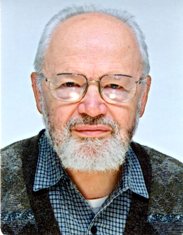Daniel Comboni
Comboni Missionaries
Institutional area
Other links
Newsletter
In Pace Christi
Galimberti Enrico
Fr. Enrico Galimberti was born at Seregno, the son of Teresa and Giovanni Galimberti, on 13 September, 1927. Having chosen, at the age of thirteen, to enter the diocesan seminary, he felt the call to the missions. At first his father was against this but he later gave his consent and Enrico could pursue his studies in the Comboni Institute.
On 7 June, 1952, he was ordained priest by Blessed Cardinal Ildefonso Schuster. In 1955, he was appointed to Bologna to replace Fr. Romeo Panciroli, then director of “Nigrizia Publishers” which later became the EMI (Italian Missionary Publications), and of ‘Amici dei Lebbrosi’ (Friends of the Lepers). It was meant to be a job that lasted a few months but Fr. Enrico worked at it for ten years.
Fr. Enrico is considered the founder of the association “Amici dei Lebbrosi”. In an interview by Fr. Lorenzo Gaiga he stated: “One of the best things about that period, it was during the fifties, was the discovery of a book by Raoul Follereau, a person unknown in Italy in those days. The title of the book was Si le Christ frappe à votre porte (If Christ knocks at your door). I ordered it from Paris and devoured it in one sitting. I gave it to Fr. Enrico Bartolucci, then editor of Nigrizia, to read, and to Fr. Raffaele Gagliardi, editor of PM, who produced a beautiful translation in a matter of days. The book was very popular and had many editions and was translated into many languages. But that was not the end – it was just the beginning. That is how the association ‘Amici dei Lebbrosi’ started. The fight against leprosy was hard but had its great victories. Now, however, there are forms of leprosy to destroy: the association now called ‘Amici di Raoul Follerau’ (Friends of Raoul Follerau), strives also for this end.”
In 1965, Fr. Enrico expressed the wish to go to the missions and, given that he knew French, he was thinking of Togo, Burundi or the Congo. Instead, on 7 December, 1965, he left for Brasil where he stayed for the rest of his life: seven and a half years at Agua Doce, eleven years at Taguatinga, six years at Sao Paulo as provincial Bursar, ten at Ecoporanga where he experienced the tensions due to the Landless and the problem of land ownership, and, from February 1999, he worked at Sao José do Rio Preto. During those years he built 38 churches, a hospital, a home for old people and the offices of the Comboni magazines in Brazil.
At Sao Jose do Rio Preto, in the state of Sao Paulo, he was appointed coordinator of our self-sufficient elderly missionaries.
In the meantime, he was made parish priest of the parish of Sao Pedro and Sao Paulo, parish administrator and treasurer (without a treasure, as he used to say), of the social work Sao Judas Tadeu, a technical school founded to assist street children that offered them an education and a professional skill so that they might avoid becoming social outcasts or criminals.
As regards the school, in 2006 he wrote: “On 18 December, 2005, we were granted a great joy: 65 adolescents who attended the lessons have completed the course: 28 are secretaries, 9 are carpenters, 12 are metal workers and 16 are typists. These are the 65 new recruits for the world of work who have been rescued from the streets.”
In December 2009, he was back in Italy for treatment. More recently he was admitted to the Centre for the Sick at Milan where he died on 14 September, 2010.
Fr. Angelo Carlo Zen, remembering Fr. Enrico, emphasised his “fidelity to his vocation before all else, to prayer and to the community timetable. Even though he had a strong, impulsive character, he knew how to acknowledge his mistakes and ask forgiveness. Even though, at times, he appeared closed and sulky, he had a heart of gold and was jovial at heart: he left us as many as 22 books of jokes, not just to make us laugh but also to make us reflect.”
Fr. Pietro Bracelli, his colleague in the administration of the province of Sao Paulo, who was close to him during the last days of his illness at Milan writes: “His was a life spent in the pursuit of generosity. He gave more value to interior attitudes which guided him at all times, than to words. His humanity, both its limits and its qualities, was conformed to certainty and confidence in God to whom he referred always, in personal prayer and in liturgical and community prayer.
He never doubted his missionary vocation. He was sure of his calling and his fidelity was known to all. During the final days of his illness, I noted how he became more detached from this earthly life. In silence he watched the great day come closer and closer, Little by little he removed himself from earthly things”.

